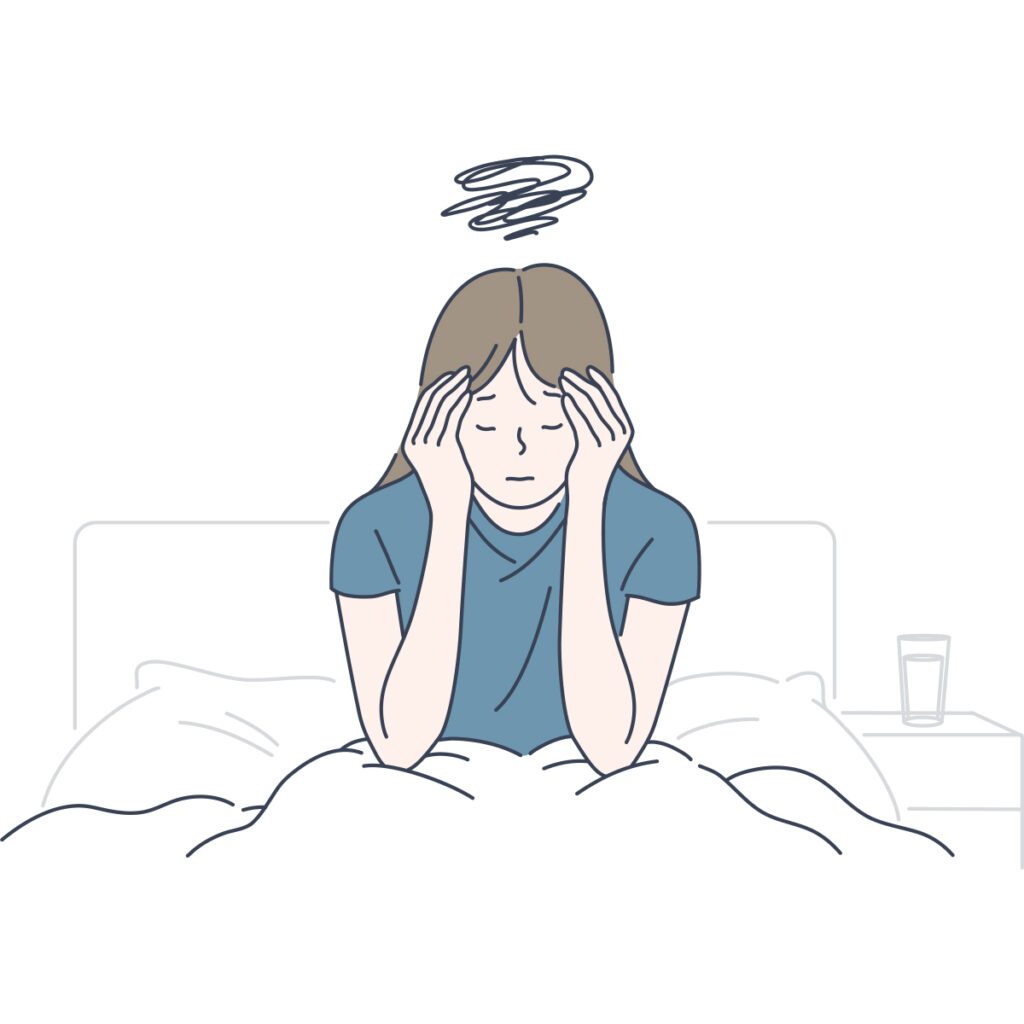Examining Exhaustion
We all know that good sleep is important for healthy brain and body function, but what happens when you still feel exhausted after a full night of rest? This is the frustrating reality of living with chronic fatigue syndrome (CFS), a somewhat mysterious disorder that can negatively impact every aspect of a person’s well-being. Here, we spoke with Dr. Matthew McClanahan of Center for Insight Medicine to learn more.


What is Chronic Fatigue Syndrome?
Chronic fatigue is a serious condition characterized by extreme tiredness that doesn’t improve with bed rest and tends to worsen with mental or physical activity. While the cause of chronic fatigue syndrome is still unknown, scientists have a working list of potential causes, including:
- Infections: In some cases, people develop symptoms of CFS after contracting viral or bacterial illnesses.
- Family history: In some cases, members of the same family have developed chronic fatigue syndrome. Researchers believe that a combination of genetics and lived experiences might explain this, but have not yet identified a specific gene or environmental factor.
- Traumatic experiences: CFS symptoms can develop in the aftermath of an extremely stressful event, such as an injury, illness, or a period of significant emotional distress, or years later as a result of childhood adversity.
What does Chronic Fatigue Feel Like?
Everyone has occasional days of feeling unmotivated, extra sleepy, or just generally “out of it,” which is known as acute fatigue. Typically, the cause of acute fatigue is easy to identify – lack of adequate sleep, a stressful schedule, or overexertion, to name a few. On the other hand, according to Dr. McClanahan, symptoms of chronic fatigue are a bit more complicated. “Chronic fatigue symptoms are more pervasive than just having a bad night of sleep and feeling some low energy the next day,” he explains. “Typically, there is some kind of non-specific physical symptomology like muscle aches, brain fog, and mood disturbance.



CFS is frequently found alongside a prior history of seemingly unrelated conditions like persistent lower back or neck pain, irritable bowel or bladder syndromes, anxiety or depression, chronic headaches, fibromyalgia, and other conditions that also do not have a definitive, identifiable cause.”
Symptoms of CFS commonly include:
- Sensitivity to light
- Headaches
- Sensitive lymph nodes
- Feelings of weakness
- Muscle and joint pain
- Difficulty concentrating
- Insomnia
- Forgetfulness
- Mood swings
- Confusion
- Low-grade fever
- Depression
Diagnosis
There is currently no specific test to diagnose CFS, and the wide range of symptoms further complicates the matter. Symptoms of CFS mimic a number of other conditions like sleep disorders, anemia, diabetes, and thyroid disorders, so diagnosis involves ruling out other conditions first. “There’s a saying in medicine that ‘common things are common’. If somebody comes in with progressive fatigue, you don’t immediately think of some rare autoimmune disease or cancer,” Dr. McClanahan explains. “For example, if you’re a young woman who is menstruating, the first step may be to check your blood counts to make sure you’re not anemic.”



After ruling out other possible causes for your fatigue, your doctor can diagnose you with chronic fatigue syndrome. Unfortunately, this process can put added stress on people with CFS. “Often, when tests come back normal, there is a dramatic increase in symptom vigilance and doubt – of the symptoms, what they might mean, if the doctors are missing something terrible – and all of these fear thoughts can send the brain into a threat response, or freeze state, which can actually worsen the ‘wired and tired’ CFS symptoms.”
Dr. McClanahan recommends having open and honest communication with your provider, which includes asking for reassurance if needed. He adds, “Very serious conditions can often be quickly ruled out with routine labwork, but patient persistence may also be needed.”
To help the process, there are a few things you can bring to your appointment:
- A list of all medical providers that you’ve seen or are currently seeing
- A comprehensive list of your symptoms including when they started, how often they occur, what makes them worse, and how your daily life is impacted by the symptoms
- A description of your best and worst days
with the condition - A list of all current medications and supplements
- A friend or loved one to support you, particularly if you are experiencing brain fog or memory issues
Treatment
Because there is no pathological cause for CFS, traditional treatment has focused on relieving the most disruptive symptoms a person is experiencing. Pain relievers can be used to address the aches and pains, and medications to regulate blood pressure or heart rhythms can help people who feel nauseous or faint when they sit or stand up.
“There’s not an exact focus, like an under-functioning thyroid gland or some other issue to treat. However, significant improvements can still be made and, in some cases, CFS can be fully resolved,” Dr. McClanahan says. “I work in the world of what’s called psychophysiological disorders. I view chronic fatigue syndrome as a product of a mind-body interaction. Our nervous systems have fight, flight, and freeze responses, and I believe chronic fatigue is essentially a brain that has moved into what we call a freeze state due to a threat overload in the nervous system.”



The human mind can perceive threats, real or imagined, and react accordingly to cause physical symptoms in the body. This can be terribly frustrating for patients with CFS, but it is important to remember that while the origin of the condition may be in the brain, the symptoms that develop as a result are very real – this is not just “in your head.”
With this in mind, Dr. McClanahan works from the inside out to identify stressors and triggers that worsen the symptoms of CFS with the hope of restoring some balance to the nervous system. “Since there is nothing pathologically wrong, we can remove all fear of cancer or other serious concerns, know that symptoms are not indicating bodily damage, and instead consider them as overly sensitive false alarms that need to be slowly desensitized through gentle re-exposure to the activities we’ve avoided. When we do this, we help our brain to feel balanced and safe, which can resolve the symptoms. This work is often challenging and requires an insightful and compassionate patient-practitioner alliance, but there is most certainly hope for recovery, rather than only settling for coping.”



Matthew McClanahan, DO, MA
Founder, Medical Director, Center for Insight Medicine

